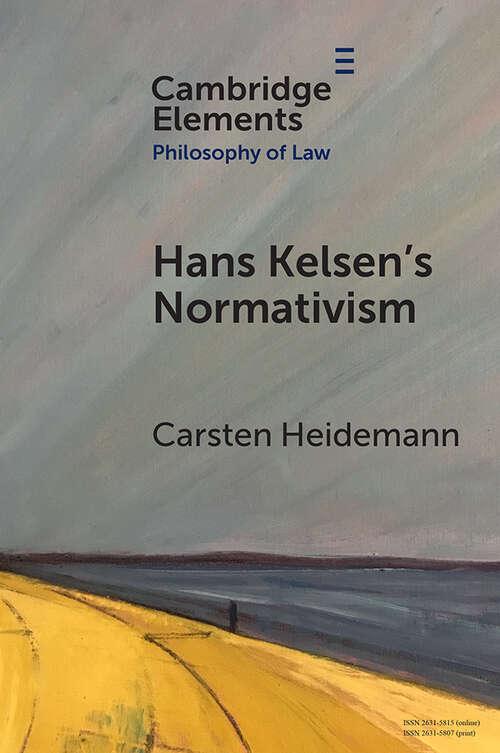Hans Kelsen's Normativism (Elements in Philosophy of Law)
By:
Sign Up Now!
Already a Member? Log In
You must be logged into Bookshare to access this title.
Learn about membership options,
or view our freely available titles.
- Synopsis
- Hans Kelsen's Pure Theory of Law is the most prominent example of legal normativism. This text traces its origins and its genesis. In philosophy, normativism started with Hume's distinction between Is- and Ought-propositions. Kant distinguished practical from theoretical judgments, while resting even the latter on normativity. Following him, Lotze and the Baden neo-Kantians instrumentalized normativism to secure a sphere of knowledge which is not subject to the natural sciences. Even in his first major text, Kelsen claims that law is solely a matter of Ought or normativity. In the second phase of his writings, he places himself into the neo-Kantian tradition, holding legal norms to be Ought-judgments of legal science. In the third phase, he advocates a barely coherent naive normative realism. In the fourth phase, he supplements the realist view with a strict will-theory of norms, coupled with set-pieces from linguistic philosophy; classical normativism is more or less dismantled.
- Copyright:
- 2022
Book Details
- Book Quality:
- Publisher Quality
- ISBN-13:
- 9781009007597
- Related ISBNs:
- 9781108995221
- Publisher:
- Cambridge University Press
- Date of Addition:
- 02/15/22
- Copyrighted By:
- Carsten Heidemann
- Adult content:
- No
- Language:
- English
- Has Image Descriptions:
- No
- Categories:
- Nonfiction, Philosophy
- Submitted By:
- Bookshare Staff
- Usage Restrictions:
- This is a copyrighted book.
